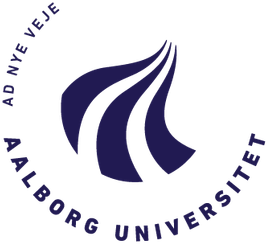
The Ludwig Maximilian University of Munich is a public research university in Munich, Germany. Originally established as the University of Ingolstadt in 1472 by Duke Ludwig IX of Bavaria-Landshut, it is Germany's sixth-oldest university in continuous operation.

The Free University of Berlin is a public research university in Berlin. It is one of Germany's most prestigious universities, with a particular emphasis on the humanities and political science.

The Technical University of Munich is a public research university in Munich, Germany. It specializes in engineering, technology, medicine, and applied and natural sciences.

Aalborg University (AAU) is an international public university with campuses in Aalborg, Esbjerg, and Copenhagen, Denmark. Founded in 1974, the university awards bachelor's degrees, master's degrees, and PhD degrees in a wide variety of subjects within humanities, social sciences, information technology, design, engineering, exact sciences, and medicine. The university is also open to international students from the European Union (EU) or from countries from the Nordic Council or outside. The international students stemming from outside the European Union or the Nordic Council are subject to tuition fees.

Established in 1918, Tallinn University of Technology is the only technical university in Estonia. TalTech, in the capital city of Tallinn, is a university for engineering, business, public administration and maritime affairs. TalTech has colleges in Tartu and Kohtla-Järve. Despite the similar names, Tallinn University and Tallinn University of Technology are separate institutions.
Tilburg University is a public research university specializing in the social and behavioral sciences, economics, law, business sciences, theology and humanities, located in Tilburg in the southern part of the Netherlands.

The University of San Carlos is a private, Catholic, research, coeducational basic and higher education institution administered by the Philippine Southern Province of the Society of the Divine Word missionaries in Cebu City, Philippines since 1935. It offers basic education and higher education. Founded originally in 1595 as Colegio de San Ildefonso, it later became the Colegio-Seminario de San Carlos in 1783 and finally obtained university charter in 1948.

University of Erlangen–Nuremberg is a public research university in the cities of Erlangen and Nuremberg in Bavaria, Germany. The name Friedrich–Alexander comes from the university's first founder Friedrich, Margrave of Brandenburg-Bayreuth, and its benefactor Alexander, Margrave of Brandenburg-Ansbach.

Moscow State Institute of International Relations (MGIMO) is an institute of higher education located in Moscow, Russia. The institute is run by the Russian Ministry of Foreign Affairs.
The Hamburg University of Technology is a research university in Germany. The university was founded in 1978 and in 1982/83 lecturing followed. Around 100 senior lecturers/professors and 1,475 members of staff work at the TUHH.
Tallinn University is a public research university in Estonia. Located in the centre of Tallinn, the capital city of Estonia, Tallinn University is one of the three largest institutions of higher education in the country. Both QS World University and Times Higher Education rankings place it among the top 1000 universities in the world.

The Karlsruhe Institute of Technology is a public research university in Karlsruhe, Germany. The institute is a national research center of the Helmholtz Association.

Christoph Lütge is a German philosopher and economist notable for his work on business ethics, AI ethics, experimental ethics and political philosophy. He is full professor of business ethics at the Technical University of Munich and director of its Institute for Ethics in Artificial Intelligence.

The TUM School of Management is the business school of the Technical University of Munich, located on its Munich campus.

The TUM School of Engineering and Design is a school of the Technical University of Munich, established in 2021 by the merger of four departments. As of 2022, it is structured into the Department of Aerospace & Geodesy, the Department of Architecture, the Department of Civil & Environmental Engineering, the Department of Energy & Process Engineering, the Department of Engineering Physics & Computation, the Department of Materials Engineering, the Department of Mechanical Engineering, and the Department of Mobility Systems Engineering.

The TUM School of Life Sciences is a school of the Technical University of Munich, located at its Weihenstephan campus in Freising. It encompasses the life sciences, in particular biology, agricultural science, food technology, landscape architecture, biotechnology, and nutrition.

The TUM School of Medicine is the research-intensive medical school of the Technical University of Munich, located in Munich. Its teaching hospital and biomedical research facility is the Rechts der Isar Hospital.

The TUM Department of Sport and Health Sciences is a department of the Technical University of Munich, located at the Zentrale Hochschulsportanlage in the Olympiapark. Its focuses on sports science and health science.

The TUM School of Computation, Information and Technology (CIT) is a school of the Technical University of Munich, established in 2022 by the merger of three former departments. As of 2022, it is structured into the Department of Mathematics, the Department of Computer Engineering, the Department of Computer Science, and the Department of Electrical Engineering.

The TUM School of Natural Sciences (NAT) is a school of the Technical University of Munich, established in 2022 by the merger of various former departments. As of 2022, it is structured into the Department of Biosciences, the Department of Chemistry, and the Department of Physics. The school is located at the Garching campus.












